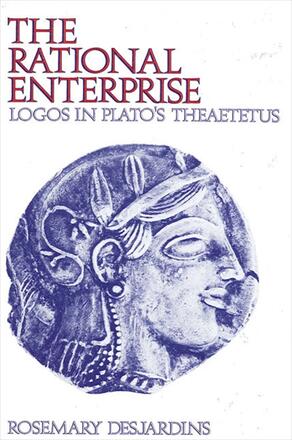
The Rational Enterprise
logos in Plato's Theaetetus
Alternative formats available from:
Description
"Desjardins' conclusion, that the Theaetetus really does point to a particular theory of knowledge, certainly will be controversial, since for many people the idea that the Theaetetus fails to define knowledge is the cornerstone of their interpretation of Plato's later philosophical thought. But whatever one thinks about the conclusion, it must be agreed that the manner in which it is defended is intrinsically important. Desjardins starts from the unassailable premise that the dialogues are internally unified, and that everything in the dialogues is there for a reason. Her method, then, is to show how some of the features of the dialogue that are usually not taken very seriously actually are very important. Of course, she is not the only scholar taking this sort of tack, but what she makes of the various elements of the Theaetetus is a most impressive construction.
Rosemary Desjardins is Visiting Assistant Professor of Philosophy at the New School for Social Research.
Reviews
"I'll take this opportunity to praise her repeated use of the mathematical paradigm set up at the beginning. Most commentators have essentially ignored the emphasis put upon the references to mathematics in the dialogue; Desjardins has made them, quite rightly, a cornerstone of her interpretation. Why would the dialogue have featured two great mathematicians, and been named and written in honor of one of them, who was to be cited for his contributions to mathematics in Euclid's Elements? Why else than what is said about mathematics in the dialogue is the key to the meaning of the dialogue?" — Anthony Preus, State University of New York at Binghamton
"Desjardins has discovered and argued for an interesting and novel interpretation of a pervasive form of argumentation in Plato's dialogues and especially the Theaetetus. Hence, her contribution to Platonic scholarship is of first rate importance. Desjardins is one of the few interpreters who really bring together both the drama and the argumentation in the dialogues, and thus she systematically treats the whole philosophical drama. " — Henry Teloh, Vanderbilt University